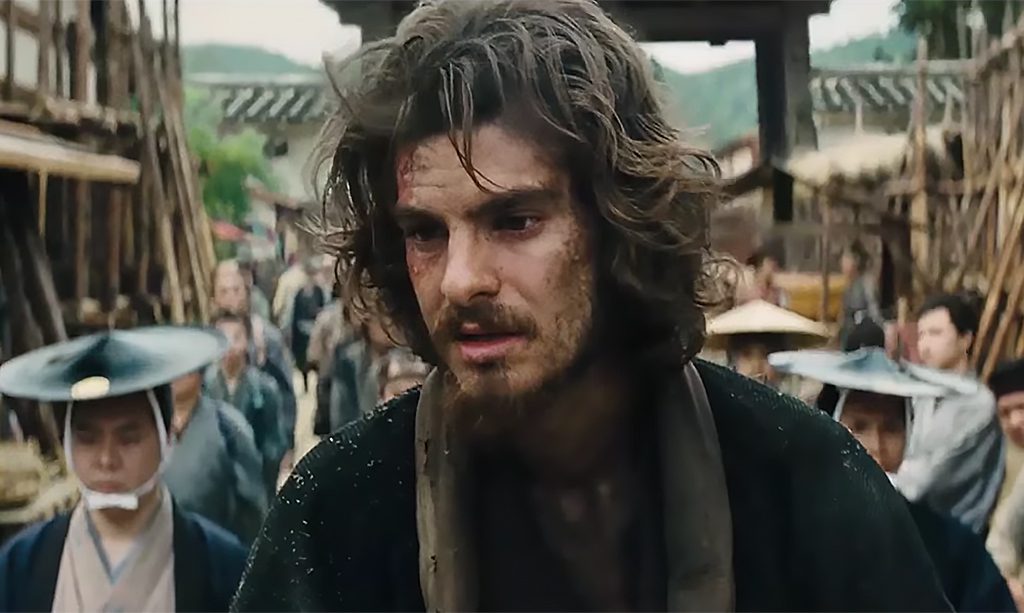What Silence Has To Say
Photo taken from Official Trailer
Rating: 4 out of 5 Stars
If you’re into movies that encourage, inspire, or even provoke, Silence may be the answer—if you hang in there and wait for the best parts to emerge.
Silence, a movie that Oscar-winning director Martin Scorsese had reportedly worked on for over two decades, revolves around two Jesuit priests who were smuggled into 17th-century Japan just when it started its isolationist foreign policy. The priests, Father Rodrigues, played by Andrew Garfield (Hacksaw Ridge), and Father Garupe, played by Adam Driver (Star Wars: The Force Awakens), were subjected to physical, emotional, and psychological torture alongside the “Kakure Kirishitans” (the underground Japanese Christians) over their faith—in scenes that take up much of the film’s 161 minutes.
The drawn-out, slow-paced narrative can be a turn-off for some, and was likely one of the reasons why the film did poorly at the box office. However, I would contend that the film is far from a bad one.
Garfield does a fantastic job expressing the emotional distress that Rodrigues goes through when the foundation of everything he believes in seems to slowly crumble. The character of Kichijiro (played by Yōsuke Kubozuka) is wonderfully written and complex. Kichijiro can be described as a strange blend between Judas and Peter who constantly challenges Rodrigues’ concepts of grace and forgiveness in the face of betrayal. The film has a lot of depth and is not afraid to ask tough questions that promise to keep viewers thinking (as it did to me).
As a Christian, I found myself pondering many of the theological questions that arose from the film. And I believe that is a good thing. Although I won’t attempt to answer many of these questions, several aspects of the movie encouraged me in my understanding of my own faith and belief.
Putting a Mentor on a Pedestal
We have a very human tendency to place a person on a pedestal. This seems especially true when it comes to spiritual mentors such as a pastor or church leader. The danger comes when we unwittingly equate this person with God; when that person fails—as humans tend to do—their actions can cause a crisis of faith.
This is exactly what happens to Rodrigues when he hears stories that his spiritual mentor, played by Liam Neeson, has publically rejected God in Japan and is working with the Japanese inquisitors to root out Christians. As a result, the Jesuit priest is left struggling with his faith in God.
Although it is a good thing to respect our leaders, we must be careful not to place them on par with, or even above God. We must make Him and His Word—and not the teachings or character of a fallible human being—the foundation of our faith.
The Struggles of Persecuted Christians
The film contains several horrific, heartbreaking scenes of martyrdom—along with inspiring scenes of believers showing steadfast faith even in their final moments, which moved me to tears. I was also struck by the complex, difficult decisions the Japanese Christians had to make under severe persecution.
A common tactic used by the inquisitors during those times was forcing Christians to step on a picture of Jesus. If they refused, the people in their village would be persecuted. Some decided to comply, but most stopped short when they were ordered to spit on the image.
As the leader of the persecuted Christians, Rodrigues’ dilemma was even more complex. Though he was prepared to die for his faith, the Japanese inquisitors threatened to kill members of his congregation if he refused to denounce his faith.
Those scenes were a stark reminder to me that even today, many of God’s followers continue to be forced to make such difficult decisions. Silence challenged me to pray more for our persecuted brothers and sisters around the world, and to pray for strength, faith, and wisdom when faced with such adversity.
When God is Silent
The struggle that Rodrigues ultimately faced was the distance he felt from God in the midst of his terrible situation. He pleaded with God for guidance but was mostly met with silence. At the height of his psychological torture, Rodrigues cried out, “Christ is here. I just can’t hear him.”
Although we may not necessarily have to face the difficult circumstances portrayed in the movie, it is likely that many of us will go through a season of feeling distant from God. How we react to those challenges can have a strong impact on the rest of our lives. Will we lose heart thinking that God does not care for us in our plight? Will we be led astray by false teaching? Or will we, with God’s help, go through the trial and allow Him to mold us into the person He wants us to be?
I’m not saying this is easy to do, and the film shows how difficult those trials can be. But James 1:12 encourages us, “Blessed is the one who perseveres under trial because, having stood the test, that person will receive the crown of life that the Lord has promised to those who love him.”
The film’s unexpected, open ending left me with more questions than answers. And yet, Silence served to strengthen my theology and beliefs, as well as give me insight into the struggles faced by persecuted Christians.











Thankful for this review and thankful for a director who shed light on and presented humankind (Christian and non-Christian alike) with a continuing reality with which we must grapple. This isn’t just for the movies and certainly not exclusive to the 17th century. Honestly, watching such graphic movies is really difficult for me…but I guess most precious and worthwhile things in life are.
God, may you be glorified through this reviewer and this film!